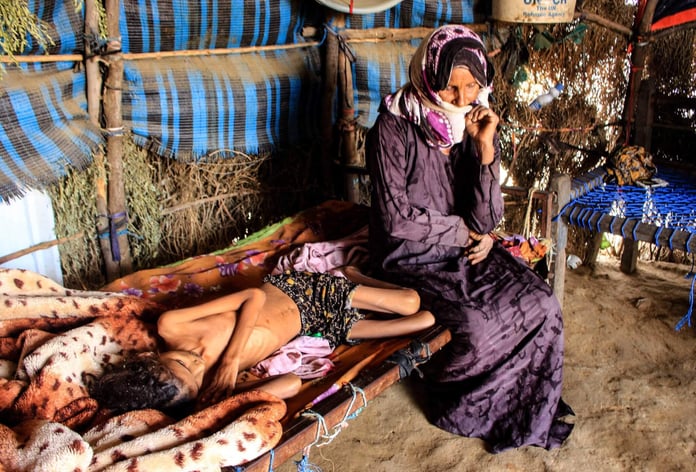
The United Nations Food and Agriculture Organization warned Monday that the effects of the Covid-19 epidemic on global food security will be long-term after it contributed in 2020 to an increase in the number of people facing hunger.
The phenomenon of increasing hunger in the world, the largest in at least 15 years, may undermine more than ever the United Nations’ goal of ending hunger in the world by 2030.
In this report published in cooperation with the International Fund for Agricultural Development, UNICEF, the World Food Program and the World Health Organization, the Food and Agriculture Organization stated: “In 2020, between 720 and 811 million people faced hunger in the world, which is about 118 million more than 2019 if we take into account the average range (768 million)”.
More than half of these malnourished people live in Asia (418 million), more than a third in Africa (282 million) and 8 percent in Latin America (60 million).
“We see that the numbers have gone up significantly,” Dominique Bourgogne, director of the FAO office at the United Nations in Geneva, said in an interview with AFP.
“The reality is worse than expected. In just one year, more people suffer from chronic hunger than in the past five years combined,” said Arif Hussain, chief economist at the World Food Programme.
More broadly, the number of people who do not get enough food throughout the year and thus “may have difficulty securing food at certain times of the year” reached 2.37 billion in 2020 or “320 million more people” than in 2019.
This makes the increase “equal to that recorded during the past five years,” according to the report. “There were factors that contributed to this situation, mainly related to conflicts, the effects of climate fluctuations and economic shocks that some countries faced,” he added. “The pandemic has fueled this situation,” he added.
In some countries, “particularly the poorest, where measures have been taken to stem the spread of the epidemic,” restrictions on movement, for example, have prevented small farmers from “selling their produce in the markets” and depriving them of their livelihoods.
On the other hand, “at the city level, there were sometimes problems with supplies, which meant that prices were rising,” according to Bourgogne.
Unacceptable
The report stated that “Before the Covid epidemic, we were not on track to eliminate hunger and all forms of malnutrition in the world by 2030. Today, the epidemic has made the task more difficult.”
Worse, according to projections in this report, “close to 660 million people could suffer from hunger in 2030 due in part to the long-term effects of the COVID-19 pandemic on global food security – or 30 million more in a non-pandemic scenario.”
The report says, “The world will not be able to achieve the goals set for 2030 for any of the nutrition indicators,” stressing that “the Covid epidemic is likely to have an impact on the spread of multiple forms of malnutrition, and its effects could be permanent beyond 2020”.
“In a world of plenty, there are no excuses for billions of people to be deprived of healthy food. This is an unacceptable situation,” UN Secretary-General António Guterres said in a written statement.
“Time is running out to make the urgent changes we need to reduce global warming,” he added. “That is why I am organizing a global summit on food systems in September. We must unite to make an urgent change.”
On the occasion of this summit in New York, Action Against Hunger calls for a “comprehensive, radical and just reform of food systems for the benefit of peasants”. The NGO said in a statement: “It is imperative that countries immediately begin fundamental changes to be at the level of the situation and stop compromising in the face of the giants of agro-industry.”
For its part, Oxfam believes that “to ensure universal access to food, governments must fund a global social protection fund and give priority to small producers who feed a large part of humanity rather than the agri-food industry.”










